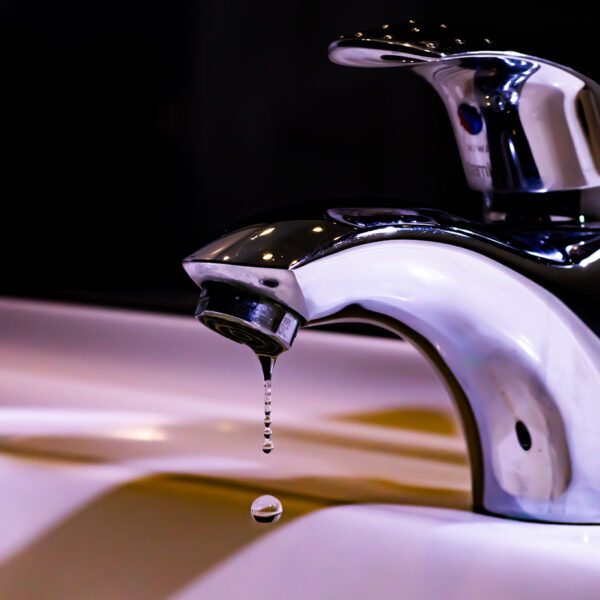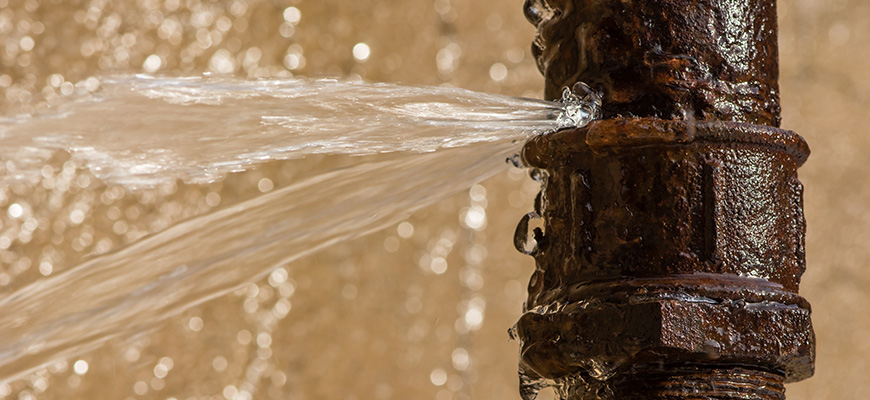Are you concerned about the quality of the water that comes out of your sink faucet? If so, you’re not alone. Many people are turning to sink faucet water filters as a solution to ensure their drinking water is clear and clean. In this article, we will explore the pros and cons of using sink faucet water filters, so you can make an informed decision for your home.
Advantages of using sink faucet water filters
Sink faucet water filters offer several advantages that make them an attractive option for improving water quality in your home. Firstly, they provide convenience by allowing you to filter water directly from the tap. This means you don’t have to rely on buying bottled water or using a separate filtration system. With a sink faucet water filter, you can have filtered water at your fingertips whenever you need it.
Secondly, these filters are affordable and easy to install. Compared to other water filtration systems, sink faucet filters are relatively inexpensive. They are also straightforward to install, usually requiring no professional assistance. This makes them a cost-effective solution for anyone looking to improve their water quality without breaking the bank.
Furthermore, sink faucet water filters are designed to remove various impurities commonly found in tap water. Contaminants such as chlorine, sediment, and lead can be effectively filtered out, resulting in healthier and better-tasting water. By removing these impurities, sink faucet filters can give you peace of mind knowing that the water you drink is free from potentially harmful substances.
However, it’s important to consider the downsides of using sink faucet water filters as well.
Disadvantages of using sink faucet water filters
While sink faucet water filters have their advantages, there are also some drawbacks to keep in mind. One common issue is that these filters may slow down the water flow. As water passes through the filter, it takes longer to fill up a glass or a pot. This can be frustrating, especially if you’re in a hurry or need a large amount of filtered water at once. If water flow speed is a priority for you, you might need to explore other filtration options.
Another factor to consider is the need for regular filter replacements. Over time, the filter cartridge in your sink faucet water filter will become less effective, and it will need to be replaced. The frequency of replacements depends on the specific filter model and your water usage. While the cost of replacement filters is generally reasonable, it’s an ongoing expense that you need to factor into your budget.
Additionally, sink faucet water filters may not be able to remove certain contaminants, such as bacteria or viruses. While they are effective at removing common impurities, it’s important to note that they may not provide the same level of purification as more advanced filtration systems. If you have specific concerns about microbial contaminants in your water, you may need to consider a different type of water filtration system.
Considering the advantages and disadvantages, it’s crucial to understand the different types of sink faucet water filters available.
Types of sink faucet water filters
There are several types of sink faucet water filters on the market, each with its own unique features and filtration capabilities. Here are a few common options to consider:
- Activated Carbon Filters: These filters use activated carbon to adsorb impurities, including chlorine, volatile organic compounds (VOCs), and some heavy metals. They are effective at improving taste and odor, but may not remove certain minerals or microbes.
- Reverse Osmosis (RO) Filters: RO filters use a semi-permeable membrane to remove a wide range of contaminants, including dissolved solids, heavy metals, and some bacteria and viruses. They provide more thorough purification but can be more expensive and may produce wastewater during the filtration process.
- Ceramic Filters: Ceramic filters consist of a porous ceramic material that traps impurities as water flows through. They are effective at removing sediment, bacteria, and some parasites. However, they may require regular cleaning to maintain optimal performance.
- UV (Ultraviolet) Filters: UV filters use ultraviolet light to kill bacteria, viruses, and other microorganisms in the water. They are typically used in conjunction with other filtration methods to provide an extra layer of protection against microbial contaminants.
When choosing a sink faucet water filter, it’s important to consider your specific water quality concerns and the contaminants you want to remove. Additionally, there are a few factors to keep in mind during the selection process.
Factors to consider when choosing a sink faucet water filter
- Filtration Performance: Look for a sink faucet water filter that addresses your specific water quality concerns. Consider the types of contaminants it can remove and whether it meets any specific standards or certifications for water filtration.
- Filter Lifespan and Replacement Frequency: Check the manufacturer’s recommendations for filter lifespan and replacement frequency. This will help you estimate the ongoing costs associated with maintaining the filter.
- Installation Compatibility: Ensure the sink faucet water filter you choose is compatible with your faucet. Most filters are designed to fit standard faucets, but it’s always a good idea to double-check before making a purchase.
- Ease of Use: Consider the ease of installation and use. Look for filters with simple installation instructions and user-friendly features such as easy filter replacement mechanisms.
- Maintenance Requirements: Some filters may require regular cleaning or maintenance to ensure optimal performance. Consider the level of maintenance required and whether it fits with your lifestyle.
Once you’ve chosen the right sink faucet water filter for your needs, it’s time to install and maintain it properly.
Installation and maintenance of sink faucet water filters
Installing a sink faucet water filter is typically a straightforward process that can be done without professional help. Most filters come with detailed installation instructions, and many manufacturers also provide video tutorials for visual guidance. It usually involves attaching the filter unit to the faucet using adapters or connectors provided in the package.
Maintenance of sink faucet water filters primarily involves regularly replacing the filter cartridge. As mentioned earlier, the frequency of replacements depends on the specific filter model and your water usage. It’s important to follow the manufacturer’s recommendations to ensure optimal filtration performance. Additionally, some filters may require periodic cleaning or other maintenance tasks, so be sure to familiarize yourself with the specific requirements of your chosen filter.
While sink faucet water filters offer convenience and ease of use, it’s essential to compare them with other types of water filtration systems to make an informed decision.
Comparing sink faucet water filters with other types of water filtration systems
Sink faucet water filters are just one option among many when it comes to improving water quality. To determine if they are the right choice for you, it’s helpful to understand how they compare to other types of water filtration systems:
- Pitcher or Jug Filters: Pitcher filters, such as those commonly used in refrigerators, provide basic filtration for small quantities of water. They are generally more affordable but require manual refilling and take up space in the fridge. Sink faucet filters, on the other hand, provide continuous filtration directly from the tap.
- Under-Sink Filters: Under-sink filters are installed beneath the sink and connect to a separate faucet or the existing sink faucet. They offer more comprehensive filtration compared to sink faucet filters but require professional installation and can be more expensive.
- Whole House Filters: Whole-house filtration systems are installed at the main water line, filtering water for the entire house. They offer comprehensive filtration for all water sources, including faucets, showers, and appliances. However, they are the most expensive option and usually require professional installation.
By comparing these different systems, you can determine which one aligns best with your needs and budget. Considering consumer reviews and ratings can also provide valuable insights.
Consumer reviews and ratings of popular sink faucet water filters
When choosing a sink faucet water filter, it’s beneficial to consider the experiences and opinions of other consumers. Reading reviews and checking ratings can help you gauge the overall performance and reliability of a specific filter model. Look for reviews on reputable websites or platforms dedicated to consumer feedback on household products.
Pay attention to both positive and negative reviews to get a balanced understanding of the strengths and weaknesses of each filter. Keep in mind that individual experiences may vary, so consider the overall consensus and use it as a reference point rather than the sole determining factor.
While consumer reviews offer valuable insights, it’s also important to consider the cost implications of sink faucet water filters.
Cost considerations of sink faucet water filters
One of the significant advantages of sink faucet water filters is their affordability compared to other filtration systems. However, it’s still essential to consider the overall cost implications. Here are a few cost factors to keep in mind:
- Initial Purchase Cost: The upfront cost of the filter unit can vary depending on the brand, model, and features. Consider your budget and prioritize the features that are most important to you.
- Replacement Filter Cost: Regularly replacing the filter cartridge is an ongoing expense. Check the prices of replacement filters and estimate how frequently you will need to replace them based on your water usage and the manufacturer’s recommendations.
- Maintenance and Repairs: While sink faucet water filters generally require minimal maintenance, there may be occasional costs associated with cleaning or repairing certain parts. Consider any potential maintenance or repair costs when evaluating the overall affordability of a specific filter model.
- Filter Lifespan: Some filters have longer lifespans than others. A filter with a longer lifespan may result in lower overall costs since you’ll need to replace the filter cartridge less frequently.
By considering these cost factors, you can make a more informed decision about the affordability of sink faucet water filters.
Conclusion: Is a sink faucet water filter right for you?
In conclusion, sink faucet water filters are a convenient and cost-effective solution for improving the quality of your drinking water. They offer the benefits of convenience, affordability, and the ability to remove common impurities. However, it’s important to consider the potential downsides, such as slower water flow and the need for regular filter replacements.
When choosing a sink faucet water filter, consider the specific contaminants you want to remove, the filter’s performance, and your budget. Compare different filter options and read consumer reviews to make an informed decision. Additionally, consider the ongoing costs associated with filter replacements and any maintenance requirements.
Ultimately, sink faucet water filters can be an excellent choice for many households. They provide a reliable and accessible way to ensure your drinking water is clear and clean. By understanding their pros and cons, you can make an informed decision and enjoy the benefits of filtered water in your home.


